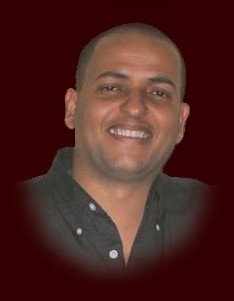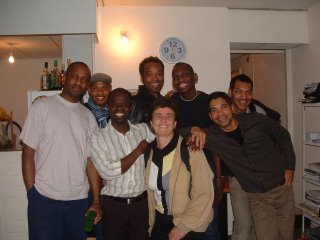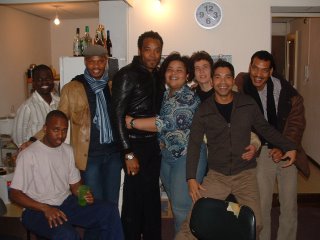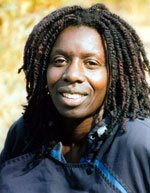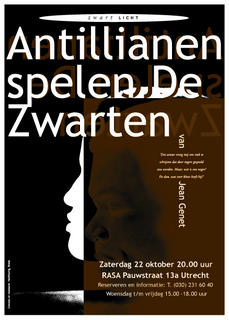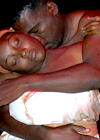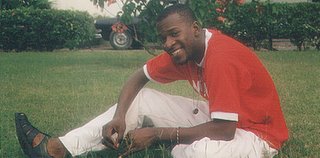
In Holland, with the general anti-islam tendencies in society, a lot of right-wing people seem to be lying waiting for an act of homophobia done by Muslim people to publish it and start condemning Muslims. Fact is that homophobia has been and will stay in most societies. In some cases done by young men trying to proof their virility, in other cases by sexist men trying to own the sexuality of women in their surroundings, and in other cases it is condoned by religion. The three monotheist religions all condemn homosexuality, and people for different reasons will be aggressive towards homosexual people. In some cases people will be killed because of their sexuality. This happened this year a couple of times in Iran, which was given big exposure in the Dutch (gay) media. But December 1st this year for the second time this year an active gay men, Steve Harvey, has been killed in Jamaica, by people claiming to be Christians. Steve Hardy has been working in the HIV and Aids field in Jamaica.
Vey often, the murderers in Jamaica use the same arguments homophobic people in Muslim societies do: our religion doesn’t accept that and that gives us the right to kill a homosexual person. It is wrong, in all cases. Normal thinking people, like me, would say that each person has the right to live his life the way he chooses. And religious people that read the Holy Books should know that ‘thou shall not kill’ is also a very important passage in the same book.
Mr. Harvey, thanks for your courage and good work during this life. May God and all saints receive your spirit!
More information at Christian Aid
UNAIDS Condemns Killing of AIDS Activist in Jamaica
Geneva, 7 December 2005 -- UNAIDS condemns the recent killing of Lenford “Steve” Harvey, a Jamaican AIDS activist who, since 1997, worked tirelessly with the Jamaica AIDS Support to contribute to the response to the AIDS epidemic.
Steve Harvey’s death is a profound shock and loss not only to the AIDS movement in Jamaica and the Caribbean, but to the whole world. UNAIDS expresses its sincere condolences to his family, friends, and colleagues.
Steve Harvey will be remembered as an extraordinarily brave and committed activist, who, irrespective of the dangers of his work, represented the interests of people living with HIV and those at risk of infection. His courage was inspiring and his capacity to reach out to those in need outstanding, providing them one on one counseling, and access to HIV and AIDS information and services.
UNAIDS is confident that the Government of Jamaica will investigate Steve’s death to ensure that those who committed this hideous crime are brought to justice.
UNAIDS reiterates its support for the strengthening of efforts by the Jamaican government to address homophobia and other causes of stigma and discrimination, which are fuelling the spread of AIDS not only in Jamaica but across the Caribbean.
Legal and policy reform have an important role to play in ensuring that human rights of all are respected, and also in helping to change broader social values and in setting standards. It is freedom from fear and discrimination that will finally empower individuals and communities to act, to mobilize their resources, and to respond collectively and positively to the AIDS epidemic.

